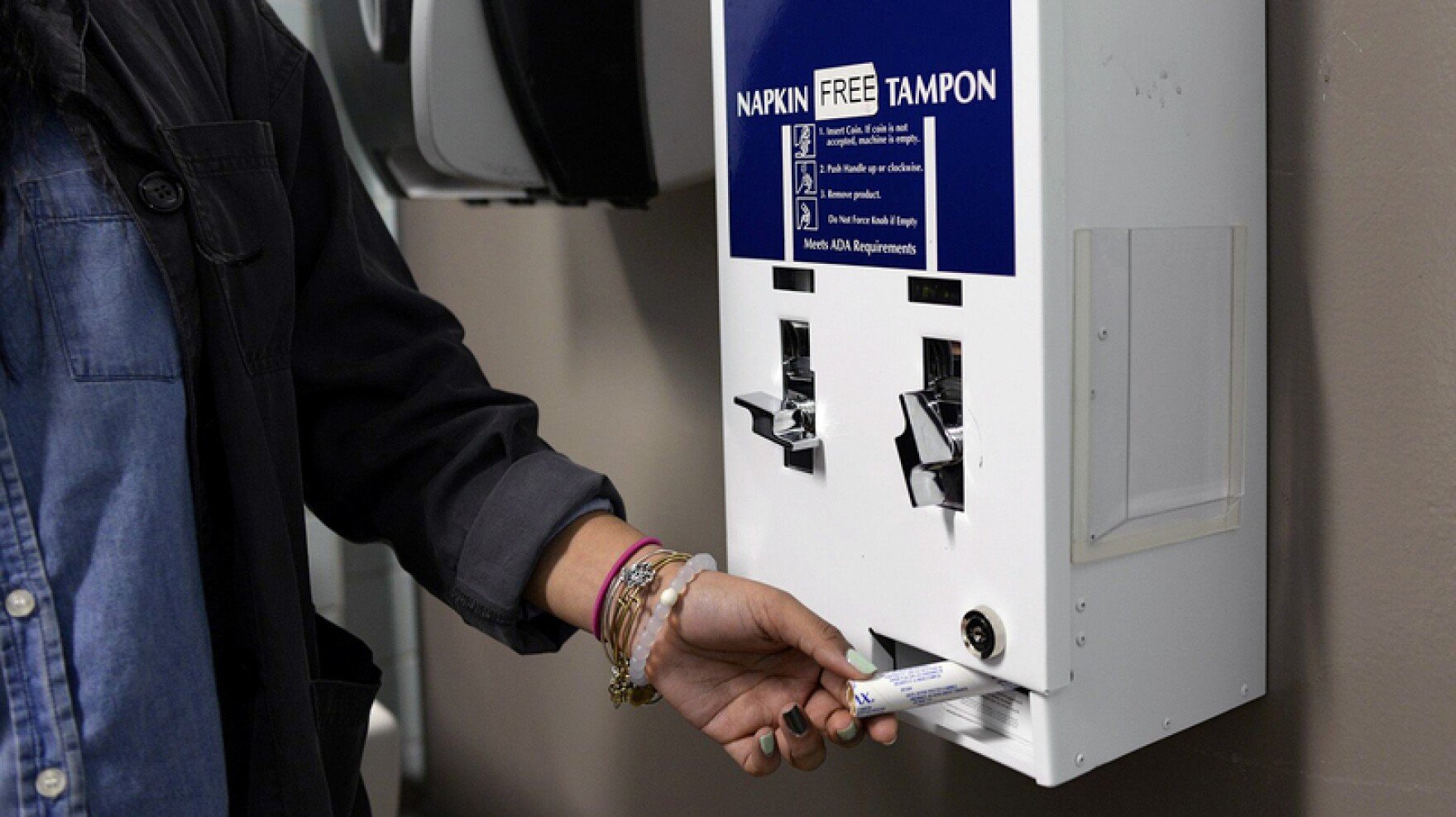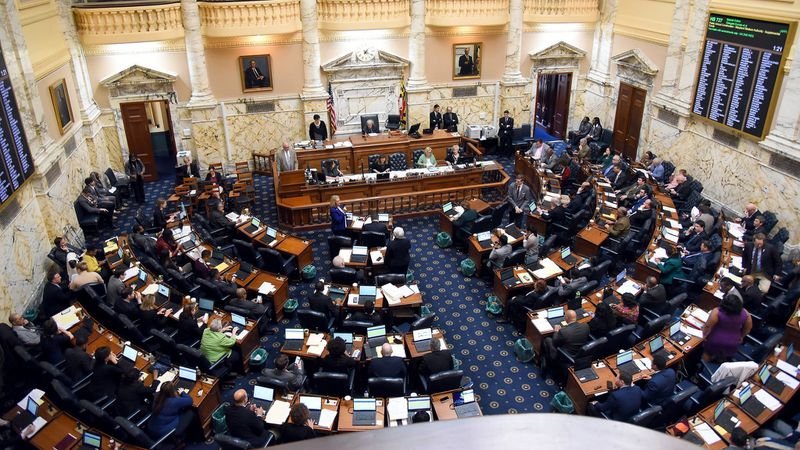HB205: Working Against Period Poverty in Maryland
By Olivia Eisenberg, The Fem Word
Background: menstruators miss school
It may seem hard to believe, but according to a study conducted by Always, a menstrual care company, in 2017, one in five girls living in the United States will miss school while on their period because they lack proper access to menstrual products.
That statistic doesn’t include all menstruators, but it still points to period poverty as a prevalent issue in the U.S. And yet there has been little discourse surrounding the subject of period poverty. Why? The answer is complicated, but at its heart is the long-standing stigma surrounding menstruation.
Photo Credit: Richard Yeh
Since the experience of menstruation predates language, the original source of the stigma surrounding it is unknown. According to Period Power author Nadya Okamoto, these views may have stemmed from mensturation’s alignment with “sex and pregnancy.” It used to be that menstruators would spend most of their menstruating years either pregnant or breastfeeding. Therefore, getting one’s period is often associated with losing their virginity (a social construct) and with impending motherhood.
In January of 2019, the bill now known as HB205 was introduced as HB133 and aimed to provide, “at no charge to students, feminine hygiene products in the restrooms” of Maryland Public Schools. The bill did not pass until Spring 2021, and although the phrase “feminine hygiene” was replaced by the more-gender-inclusive “ menstrual hygiene,” the bill still only required dispensers with menstrual products be put in women’s restrooms.
Photo Credit: Paul W. Gillespie / Baltimore Sun Media Group
This is problematic for several reasons. It assumes that all menstruators identify as women, or at least have access to women’s restrooms. Some menstruators may identify as male, non-binary, gender-fluid, or agender and do not not feel comfortable using women’s restrooms. For them, getting their period may be a time of extreme gender dysphoria, and it would exacerbate the discomfort for that person to have to go into a women’s restroom for a tampon or pad.
In any case, excluding men’s and gender-neutral restrooms from the bill perpetuates the norms of the gender binary and sends a message that non-women identifying menstruators are not valid.
Obstacles to Reintroduction
With the Maryland Legislature’s passing of HB205 (and the adjacent SB 427) in 2021, Maryland Governor Larry Hogan failed to sign the bill in 30 days, prompting it to become law without his signature. Hogan’s refusal to sign this gender exclusive bill demonstrates his likely unwillingness to support a future, gender-inclusive version of the bill.
For this reason, delegates are wary of reintroducing an amended version of the bill during Hogan’s tenure and have voiced their intention to wait to reintroduce the bill until there is a new governor who will support access to menstrual products for all. Since Hogan is not running for reelection in 2022, Maryland voters have an opportunity to elect a governor who will fight for universal access to menstrual products.
Hogan’s apathetic attitude is not unique. Many Marylanders and people all over the world, whether intentionally or unconsciously, don’t use gender inclusive language when talking about menstruation. In some cases, lawmakers or those influencing the law-making process don’t realize they aren’t being inclusive in their language, and don’t realize the need for menstrual products in all restrooms. Others deliberately avoid challenging the gender binary due to their own religious, political, or sexual biases.
The easiest way to dismiss efforts to increase access to menstrual products is cost oriented. Although cost metrics will always be a factor in political decisions, this argument is usually a projection of a lack of education surrounding the necessity of menstrual products. Politicians, who are overwhelmingly cisgendered men and/or economically privileged, don’t think they are necessary to provide, and therefore aren’t keen on spending money on what they consider to be “unnecessary” or “luxury” products.
And yet, they aren’t overly concerned with the cost of providing toilet paper in all restrooms because they understand that toilet paper is necessary for many when they use the restroom. The fact is, the same can be said of menstrual products. The cost of maintaining product dispensers will vary between school districts, and even between restrooms in the same school, but on average, each dispenser costs around $230.
That being said, the cost of this program should not outweigh the value of all the class time that young people risk losing if they can’t get a pad or a tampon during their period.
The “all this gender stuff makes everything too complicated” or “only women get their period” argument is not only inaccurate, it is dangerous. Closing one’s mind off to the validity of individuals’ gender identities cultivates attitudes which actively exclude certain demographics (non female-identifying menstruators), and makes it seem acceptable to overtly discriminate against and harm those who hold non binary identities. In the United States, trans individuals are four times more likely than cisgender individuals to be victims of violent crimes, according to the Williams Institute at UCLA School of Law. By using gender-inclusive language when talking about menstruation and making menstrual products accessible to everyone, we can work towards a safer and more accepting world for all; and these steps are simple compared to how difficult it is to be a trans person living in a world that chooses to reject them on a daily basis.
ActioN: What you can do
Talk about menstruation using gender inclusive language! Simply normalizing the habit of referring to people who get a period as “menstruators” or “people who menstruate” instead of “women” or “girls” will not only validate non female-identifying menstruators, it will warm everyone up to the idea of removing gender from conversations about menstruation.
Read about period poverty
Period Power by Nadya Okamoto
Periods Gone Public: Taking a Stand for Menstrual Equity by Jennifer Weiss-Wolf
Written or spoken testimony
Testify for the bill when it is reintroduced (likely in 2023)
Lobby your district’s legislators to urge them to support the bill
Elect a Maryland governor that will support access to period product for all menstruators
The views, thoughts, and opinions expressed in this article belong solely to the author, and do not necessarily reflect the position of The Fem Word organization. Any content provided by our authors are based on their opinions and are not intended to malign any religion, ethnic group, club, organization, company, individual or anyone or anything.
These links are being provided as a convenience and for informational purposes only; they do not constitute an endorsement or an approval by the The Fem Word of any of the products, services, or opinions of the corporation or organization or individual. The Fem Word bears no responsibility for the accuracy, legality, or content of the external site or for that of subsequent links. Contact the external site for answers to questions regarding its content. Any content provided by The Fem Word is not intended to malign any religion, ethnic group, club, organization, company, individual or anyone or anything.

